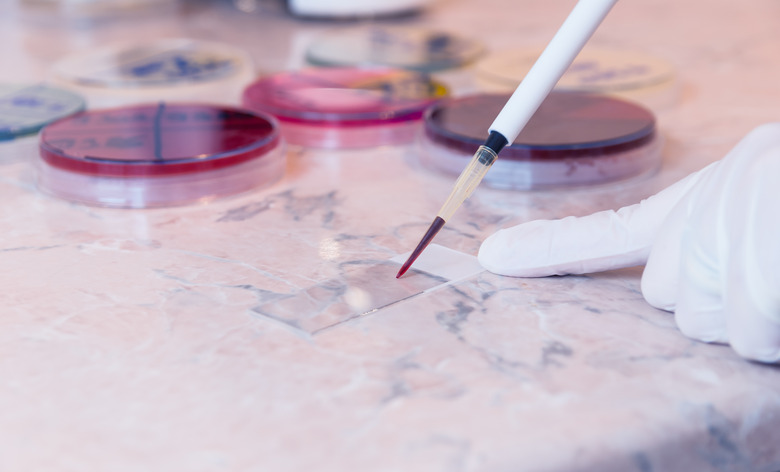G1 Phase: What Happens During This Phase Of The Cell Cycle?
Scientists refer to the stages of a cell's growth and development as the cell cycle. All nonreproductive system cells are constantly in the cell cycle, which has four parts. The M, G1, G2 and S phases are the four stages of the cell cycle; all stages besides M are said to be a part of the overall interphase process. Interphase is the process by which cells accumulate nutrients, grow and divide.
Main Functions of G1 Phase
Main Functions of G1 Phase
The G1 phase is often referred to as the growth phase, because this is the time in which a cell grows. During this phase, the cell synthesizes various enzymes and nutrients that are needed later on for DNA replication and cell division. The duration of the G1 phase is variable and it often depends on the nutrients that are available to a cell. The G1 phase is also when cells produce the most proteins.
The Safeguards
The Safeguards
Every cell has certain regulators that help monitor the growth in the cell. At the end of the G1 phase, cells have a "restriction point," which is a safeguard that ensures that protein synthesis occurred properly and the cell's DNA is intact and ready for the future stages. The specific safeguards are proteins with the name, cyclin-dependent kinases or CDK; they also initiate DNA division during the S phase of the cell cycle.
The Sub-phases
The Sub-phases
Although G1 is a phase of the cell cycle, it also has four subphases that describe its processes and functions. The four stages are competence, entry, progression and assembly. Competence refers to the process by which a cell absorbs nutrients and things from outside of the cell membrane. As these materials enter the cell in the entry subphase, they are used to help the cell grow, which takes place during the progression subphase. The assembly subphase refers to the process by which all of the materials come together in the cell to complete the G1 process and the restriction point stage.
Notation
Notation
Although the four-stage process is quite simple, the notation isn't always so clear. G1 combines the terms "gap" and "one." Thus, G1 refers to the first gap of time in the cell cycle and G2 refers to gap number two. The other phases of the cell cycle, S and M, refer to the terms "synthesis" and "mitosis," respectively. Within the G1 phase, the subphases are referred to as g1a, g1b, g1b and g1c, in the same order.
Cite This Article
MLA
McDaniel, John. "G1 Phase: What Happens During This Phase Of The Cell Cycle?" sciencing.com, https://www.sciencing.com/happens-during-g1-phase-8220720/. 13 May 2019.
APA
McDaniel, John. (2019, May 13). G1 Phase: What Happens During This Phase Of The Cell Cycle?. sciencing.com. Retrieved from https://www.sciencing.com/happens-during-g1-phase-8220720/
Chicago
McDaniel, John. G1 Phase: What Happens During This Phase Of The Cell Cycle? last modified August 30, 2022. https://www.sciencing.com/happens-during-g1-phase-8220720/
